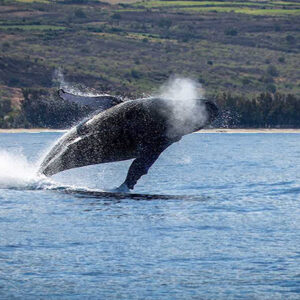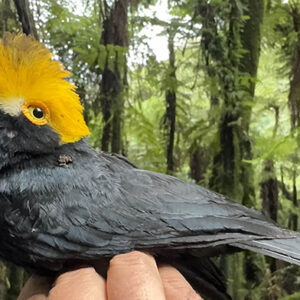Orca whales are generally well loved. They are known to be intelligent and engaging, especially when it comes to humans. While they’ve also been feared, people have learned to embrace them.
However, Orca attacks are happening more and more often. What drove these whales to become aggressive? Scientists believe that these mammals are now working in tandem.
The coordinated strike from the whales is a concerning thing. Scientists believe that they actually communicate with one another. They actually have ways of communicating and passing information when they decide to go for a prey.

Scientists have noticed a trend and they took a closer look at the Orca whales. What they realize is that these otherwise known “killer whales” have started to attack boats that float along the coasts of Spain and Portugal. What they saw was that these attacks have been carefully coordinated. Those who have become witness to the incidents swore by the fact that the whales were actually communicating and working as a team.
This strange phenomenon was first reported earlier in the year. The sailors of the boats have reported on the attacks in the area. In fact, some have shared a video of one of these encounters. This was then shared online by a British sailor that goes by David Smith.
Smith says that he was sailing on a 45-foot yacht off the coast of Portugal last October. Suddenly, his boat was attacked by a group of angry Orcas. He shares with BBC, “I don’t frighten easily and this was terrifying. I looked at this animal – and it was jet black and brilliant white.”
Smith is an experienced sailor. He has been doing this since 2013. He sailed around the European coasts as he delivered boats to the owners. Last October, he was doing what he does best and delivered a yacht from France to Gibraltar. They were in the middle of the ocean when he and his crew started to notice that they were being attacked by Orcas. As experts know, the Gibraltar Orcas are considered endangered. Studies show that there are fewer than 50 of them in the wild at this point in time.
The whale attack began just before sunset. Smith and his crew were caught off guard and didn’t know what was happening at first. One man started to notice the animals and shouted out, “It looks like we have some large dolphins.”
Smith looked over the boat and quickly realized that they were being attacked by whales. He immediately spotted the color on the animals. For nearly two hours, the whales rammed the boat and didn’t stop what they were doing. This happened while they were sailing off the coast of Portugal.
Smith further explained,“It was continuous. I think there were six or seven animals, but it seemed like the juvenile ones — the smaller ones — were most active. They seemed to be going for the rudder, the wheel would just start spinning really fast every time there was an impact.”
The group was sadly away from proper radio range at that time and was therefore unable to call for help. They had to wait until they reached the Portuguese coast guard on a satellite phone. The coast guard immediately advised them to cut the engine, take down the sails, and look as “uninteresting” as possible to divert the Orcas attention to something else.
Smith shares, “So then we were just drifting. But while I was on the phone, I could hear them ramming the boat. At one point, one of the larger animals came right to the stern and flipped onto its back — you could see its bright white underside.” He was scared for the boat at that time. The animals were big and strong enough to rupture the boat, which in turn, cause them to collapse and sink into the ocean.
“If that fractures, you’re really in trouble. I was definitely preparing to ask the Portuguese coast guard to send a helicopter to get us off,” Smith said. As quickly as the attack started, it also stopped suddenly.
However, Smith’s case isn’t as unique as people think it is. This is just 40 of similar incidents that have happened within the year.
Marine biologist Jörn Selling also observed the activity and supposed the possibly that the orcas have become more comfortable with the quieter waters. The area has been more peaceful during the pandemic and the restrictions that came with it. With the easing of the lockdown and the world slowly opening up, the waters have become teemed with sailors and there is also an increase in water traffic.
Morris believes that these whales are no longer used to the change and are fighting back against something unknown. She only hopes that these wild and surprising encounters could raise awareness. People need to know what they’re up against and at the same time, understand what these orcas are feeling.
What are your thoughts? Please comment below and share this news!
True Activist / Report a typo


